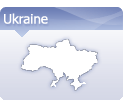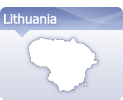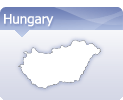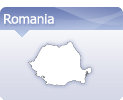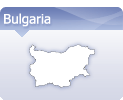Ukrainian ІТ Industry: Reboot in the Wartime
Considering the importance of a holistic analytical research of the national IT industry that contributes to elaboration of further development strategy by government and business, IT Ukraine has conducted the new research with participation of its members and in partnership with the Ukrainian IT clusters in Vinnitsa, Dnipro, Kyiv, Konotop, Mariupol, Odessa, Rivne, Ternopil, Kharkiv, Khmelnytskyy, Cherkasy, Chernivtsi, Chernihiv. Here are the results and new data of this research. The potential of the IT industry The rapid growth of the industry by more than 50% during 2019-2021 continued up to the War and, according to the National Bank of Ukraine, in February 2022 reached the highest monthly indicator of export in the history of the Ukrainian IT market – $839 million, which is 43% more than for the same period in 2021 ($480 million). According to the results of 2021, the industry provided 37% in the export of computer services and USD 6.8 billion of the income to the economy of Ukraine, paid UAH 23.5 billion worth of taxes and fees. At the beginning of 2022, 285,000 IT professionals were working in the industry. During the first quarter of 2022, the IT industry provided record-high $2 billion of export income in wartime. A similar figure in 2021 was $1.44 billion. Therefore, the volume of IT exports has increased by 28%. In March 2022, the Ukrainian IT industry maintained 96% of computer services exports ($ 522 million) compared to the similar period last year ($ 546 million) and proved its resilience in the time of instability and increased risks. How IT professionals help Ukraine during the War According to updated data, an average of 3% of IT specialists joined the Armed Forces (1% more than the previous figure). At the same time, the figures vary depending on the company size:
The involvement of specialists in governmental projects and cyber force has increased significantly from 5% to 9% in the industry:
During the two and a half months of the War, the IT industry has managed not only to maintain its operational activities, but also to actively support the Armed Forces of Ukraine and the Government. During all this time, the companies participating in the research have transferred UAH 806 million to charitable foundations and on various humanitarian purposes. Military equipment, gear, clothing, tech equipment and other necessities for our defenders are purchased on a regular basis. Thus, by the companies that took part in the research, 11,102 bulletproof vests, 6,574 helmets, 140 cars, 700 turnstiles, 136 drones, 3 Starlinks, 3,756 laptops and tablets, 834 handheld transceivers and communications equipment, 332 night vision devices, 255 thermal imagers, 812 military first aid kits and more were purchased and handed over to the Armed Forces. Remaining an economic support for the Government in Wartime, IT business is almost the only one that pays taxes in advance. 27% of the surveyed companies paid UAH 165 million taxes in advance. On average, an IT company pays the following amount of taxes to the budget of Ukraine every month, depending on the size:
Sustainability of the industry During the War, most companies maintained customers and contracts despite all the risks stated by customers, such as failure to implement projects due to the War, mobilization of key engineers, instability in the country, physical data security, cyber threats, lack of Internet, inability to work with developers located in areas of active hostilities. In general, 52% of companies kept 100% of their contracts, 32% of companies - 90-99% of contracts. Only 16% of companies lost 10% or more of their contracts. The main factors of keeping the customer were:
At the same time, the reasons for the loss of customers include geopolitical risks and security, customer’s internal policy, refusal to work with customers from russia and belarus, change of customer’s development strategy, relocation of teams or mobilization, loss of supply chains. IT business development forecasts for 2022 According to our new data, 77% of IT companies have attracted new customers already during the War, 56% of them expect the growth by 5-30% this year. 41% of companies forecast the preservation of existing volumes at 50-100%. Only 3% of companies expect volumes to fall by 50% or more. Relocation of businesses and teams The largest percentage of relocated employees is in the companies of 1200+ people (32%), in companies of 200-1200 people this figure is 24%, in companies up to 200 people - only 14%. The main countries of relocation are Poland, Germany, Spain, Romania, Portugal, Bulgaria, the Netherlands, Turkey, the Czech Republic, Moldova, and Croatia. At the same time, all large companies (1200+ people) and 64% of companies of 200-1200 people plan to open new offices. Instead, 75% of companies up to 200 people do not plan to expand. Potential countries to open offices include: Poland, Romania, Spain, Bulgaria, Portugal, Croatia and the United Kingdom. Companies expect that up to 18-25% of employees will relocate abroad after the War. Source: IT Ukraine Association |









